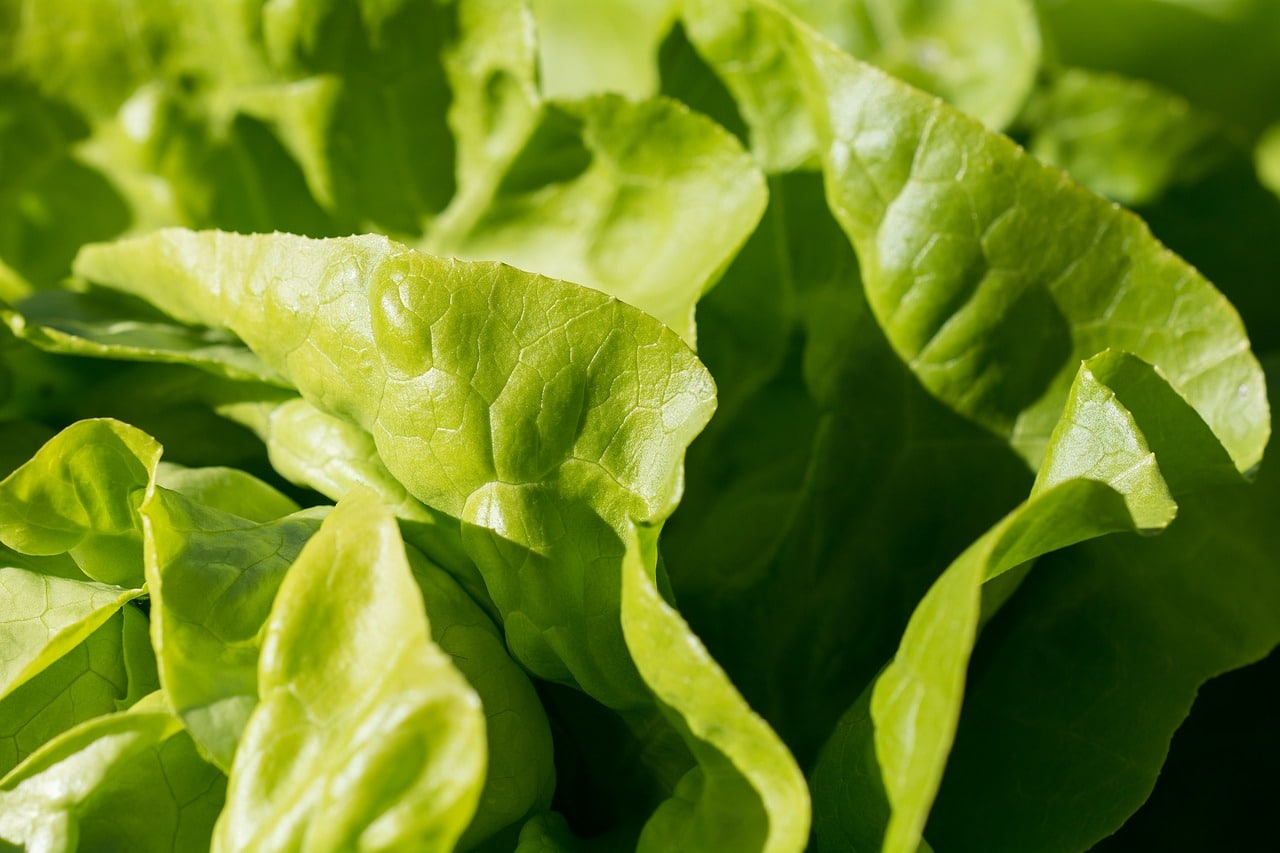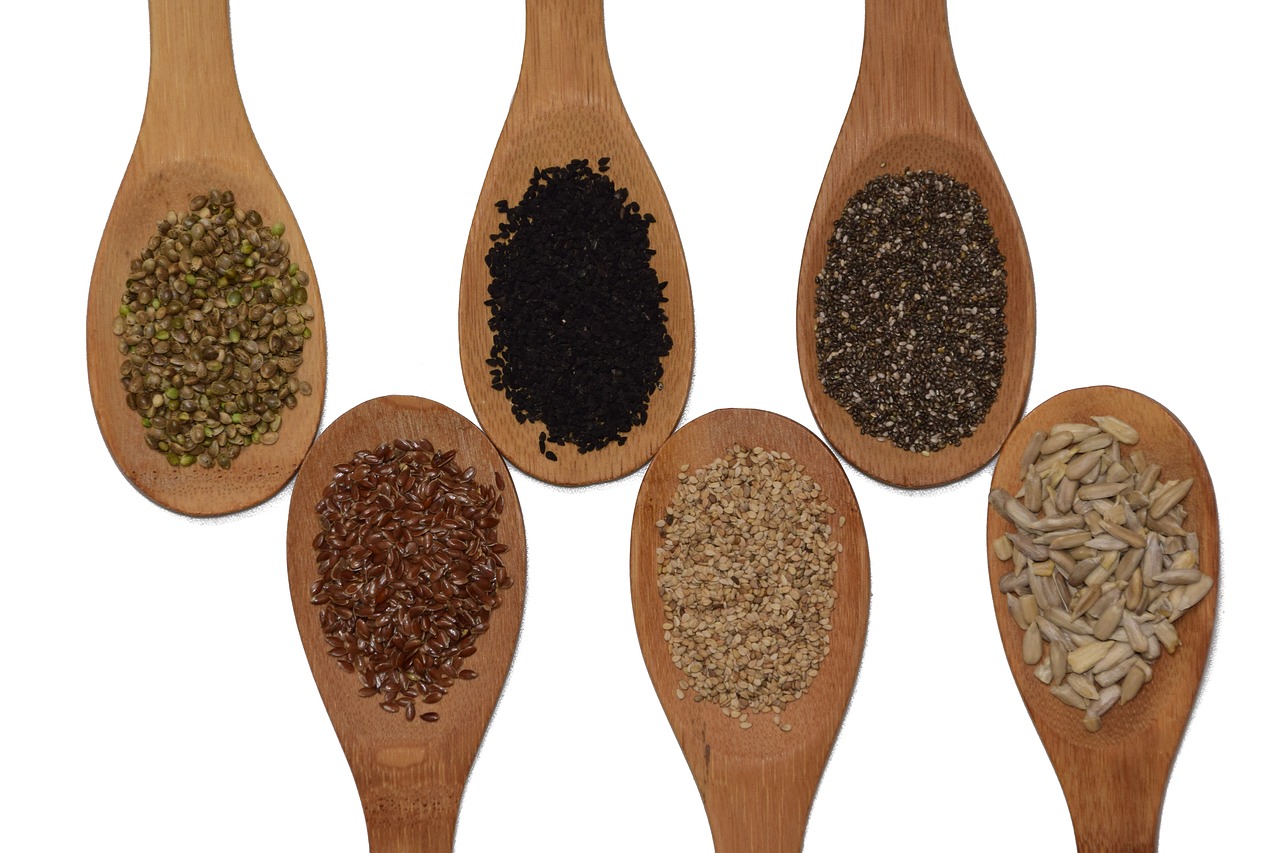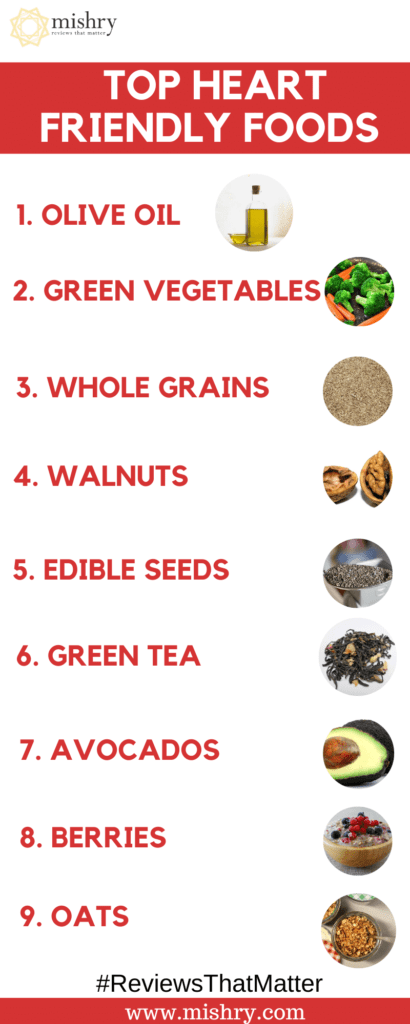1. Olive Oil
Olive oil is a great source for unsaturated fats, which can help in the increased concentration of HDL “good cholesterol” levels. Extra virgin olive oil also has a sizeable quantity of monounsaturated fatty acids, which play an important part in lowering the risk of heart disease. Unlike LDL, which is collected in the arteries, HDL Cholesterol is transported to the liver, which is essential for expelling it from your body, thus reducing your blood’s cholesterol level and lowering the chances of it getting stuck in your arteries, promoting a healthy heart.
2. Green Vegetables
Consumption of leafy green vegetables can significantly lower the risk of coronary heart diseases. Furthermore, these food items are extremely rich sources of vitamin K and nitrates, both of which give green vegetables a powerful antioxidant property. This antioxidant-rich quality of leafy greens makes them beneficial for tackling free-radical induced damages that can result in the inflammation of tissues. Thus, by lowering the inflammation response of the body’s tissues, these vitamin-rich food items keep the blood vessel walls from contracting and allows the proper flow of blood from the heart to the organs and vice-versa.
Related Reading:
Anti-Inflammatory Foods: List Of Foods That’ll Help You Fight Inflammation

3. Whole Grains
If you are suffering from a gluten allergy, then the list of whole grains available for your consumption might be small, but that does not mean that you’ll have to compromise your health factor for your comfort. Many gluten-free whole grains such as quinoa, millet, and buckwheat, have proven themselves to be peculiar heart-friendly food items that one can, without thinking twice, add to their diet. These grains are responsible for lowering the risk of diabetes, lowering weight, lowering blood pressure, and lowering your cholesterol levels, all of which, to say the least, have a major positive effect on the health of your cardiovascular system and blood cholesterol levels.
4. Walnuts
Unless you are allergic to nuts, adding these little packets of nutrition into your daily diet would do you a world of good. And out of all the variants that you can find, walnuts are the ones that seem to be effortless in that task. Loaded with omega fatty acids and vitamin B, these nuts are particularly advantageous when it comes to lowering your blood cholesterol rate and combatting the inflammatory response of tissues, thus prevent the inflammation of the inner blood vessel walls and maintaining a proper flow of blood throughout the system.

5. Edible Seeds
Many edible seeds such as chia seeds, hemp seeds, and flax seeds, are responsible for a healthy lifestyle. Chia seeds, particularly, have a significant amount of omega 3 fatty acids, which help in improving the concentration of good cholesterol in the body. These seeds also have a significant amount of dietary fiber, which helps in the slowing down of the digestive system and also the absorption of sugar. This property of these small ingredients gives pancreas enough time for the secretion of insulin (a hormone the breaks down sugar molecules into energy), thus it lowers the risk of diabetes or high sugar levels in the blood, which is also responsible for lowering the risk of coronary heart diseases.

6. Green Tea
Loaded with antioxidants, green tea is the least processed variant of tea, thus it appears green in color and retains its leafy taste. Green tea is rich with catechin, a phenolic compound that is known for its potent antioxidant properties. This allows green tea to be a beneficial beverage for lowering the risk of free-radical induced inflammation in the body, which not only helps in the maintenance of proper blood pressure and a healthy heart but also delays the onset of age-related concerns such as arthritis and asthma.
Also Read: Thinking Of Reusing Your Tea Bags? Read This. | Is Green Tea Healthier Than Black Tea?
7. Avocados
Sometimes considered to be an exotic fruit, this green flowering plant is filled with vitamin E among other nutrients. In addition to that, being a great source of monounsaturated fatty acids further makes avocados a great addition for a heart-friendly diet. The daily consumption of this fruit would ensure a reduced concentration of bad cholesterol in the bloodstream along with an increased concentration of good cholesterol. Together, this is believed to significantly lower the risk of major heart diseases.
Also Read: Avocado Diet | Super Fruit That Keeps You Healthy
8. Berries
Anthocyanin, a highly potent antioxidant, can be easily found in blackberries and raspberries, both of which are healthy snack choices when it comes to following a healthy diet. Berries are known to reduce the blood cholesterol level, and thanks to their antioxidant content, they are also responsible for the proper flow of blood through the blood vessels.

9. Oats
A specific fiber known as beta-glucan, which is present in oats in an impressive amount, is famous for reducing the blood cholesterol levels. The other factors that make oats a heart-friendly addition to your diet are its ability in tackling rising blood sugar levels, obesity, and high blood pressure, thus making it a beneficial product in an overall sense.

Other food items such as dark-chocolates, and fruits such as oranges and papaya, also could prove to be helpful for a diet that promotes and maintains your cardiovascular health. Cocoa is a fiber-rich ingredient, thus dark chocolates, as compared to other milk chocolates, have a better health impact due to its fiber-rich nature, which also means that even if you opt for a heart-friendly diet, there is no need for you to cut down on pleasurable food items that can satisfy your ever-changing taste buds.














